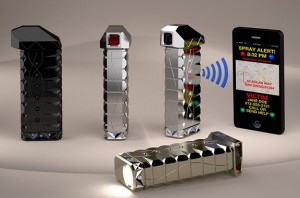Many BYU students believe nothing can go wrong in the peaceful metropolis of Provo. They say crime is something that happens on other campuses. Unfortunately, these individuals may need to guess again.
According to the 2013 BYU Clery Act Campus Security Report, there were 16 incidences of forced sexual offenses, three burglaries, one motor vehicle theft, a fire incident and one aggravated assault last year. This year alone, there have already been various incidents of theft. These numbers should cause students, especially women, to consider what they are currently doing to keep themselves safe.
“People can easily get into a ‘bubble’ here at BYU and believe that everyone in the city follows the Honor Code. Unfortunately, that is not the case. Anyone can walk onto campus, and the general student body needs to be more aware of that,” said Andrea Mahlquist, a 21-year-old senior from Spokane, Wash., studying elementary education. “It is important to know what to do in different situations and to know that it can happen.”
BYU wants to make sure that its students feel safe and are protected from harm. BYU University Police provides students with the opportunity to enroll in a Rape Aggression Defense (RAD) class, and, if desired, a police officer can escort them home from campus in its Safe Walk program.
“Brigham Young University is a remarkable place to live, study and work. Historically, the campus has experienced lower crime rates than many other educational institutions of similar size,” said Lt. Arnold Lemmon of University Police. “However, BYU is not immune to the criminal acts of others. BYU’s crime prevention programs and measures, though effective, are not substitutes for one’s responsibility to practice good safety habits.”
Rebecca Wiseman, a 24-year-old senior from Alpine, studying international relations, shared some of her tips for staying safe, especially for women who walk home at night.
“I try not to listen to music when it is late at night, because I do not want to put on my headphones and isolate myself,” Wiseman

said.
Wiseman also encouraged students to know how to get into contact with somebody fast and to be constantly aware of their surroundings.
Women who still may need extra security can look into purchasing products such as the PeaceKeeper Mini. Designed by Heber-based company TigerLight, this product is a self-defense device that serves as a flashlight, pepper spray, and a Bluetooth device all in one. When the pepper spray is released, a message is sent to friends and family of the victim, notifying them where they are.
Wiseman and Mahlquist both suggest that to improve campus security, BYU should improve lighting in poorly lit areas, advertise their own safety programs more and conduct practice drills throughout each semester.




